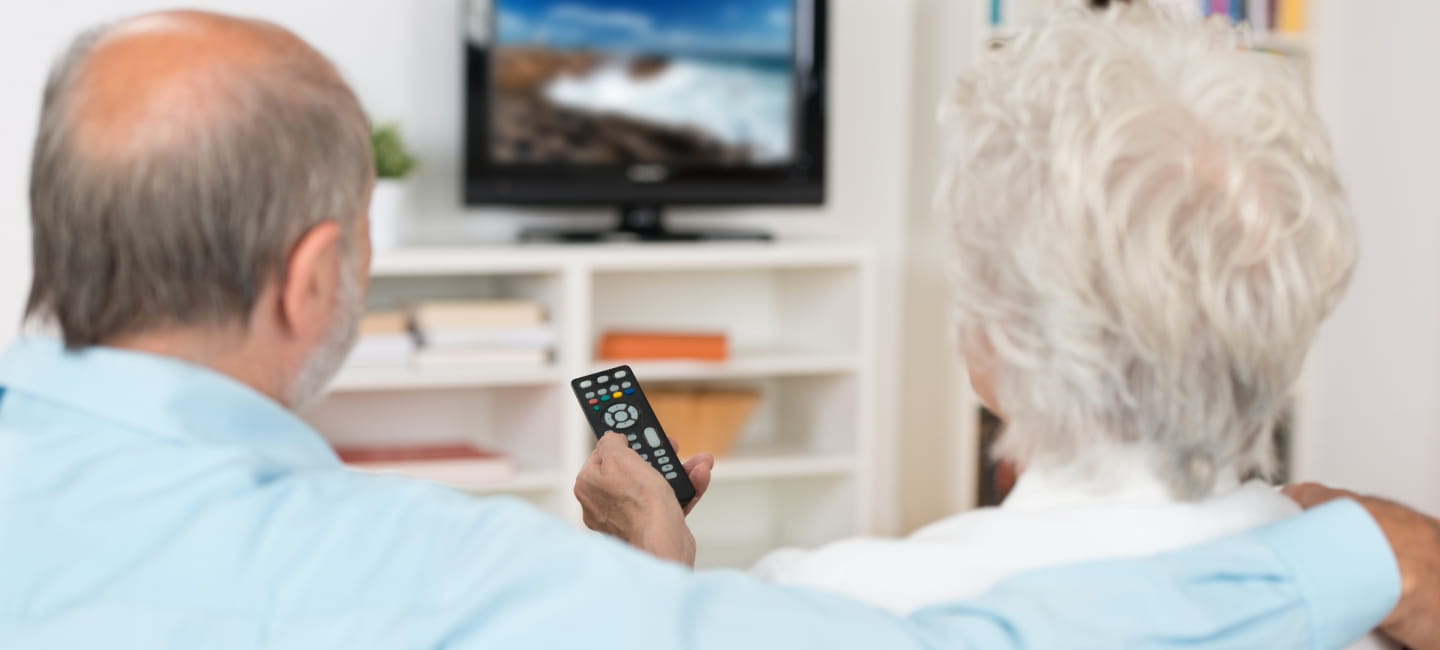If you watch live TV or use BBC iPlayer, you will need to have a TV Licence and on 1 April the price will rise from £159 to £169.50 a year.
However, some TV-watchers might find that they are eligible for a free Licence or a discount.
Your TV Licence allows you to watch or record any live TV service such as BBC, ITV or Channel 4 and it also allows you to use BBC iPlayer.
You don’t, however, need a TV Licence for streaming or on demand services such as Netflix, Amazon Prime or All4. You also don’t need a TV Licence to watch online videos on sites like YouTube, as long as they’re not broadcast live.
TV Licences used to be free for all over-75s, but that changed in 2020. Now, if you’re 75 or over, you’ll only be eligible for a free TV Licence if you (or a partner that lives with you) is claiming Pension Credit.
In 2022-23 the BBC funded 947,000 free TV Licences, including 741,000 for over-75s who were in receipt of Pension Credit.
Alternatively, if you’re retired and are over 60 or disabled, and live in sheltered accommodation or a residential care home, you can get a TV Licence for just £7.50. Your housing manager should be able to tell you if you’re eligible and apply for it on your behalf.
Similarly, if you’re blind (or severely sight impaired) you can apply for 50% discount, which also covers anyone who lives with you. You must be able to provide evidence, such as a Certificate of Visual Impairment.
If you meet the criteria, you can call 0300 790 6096 and speak to an adviser to request an application form (lines are open between 8.30am and 6.30pm, Monday to Friday.)
Or if you prefer to apply online and you know your TV Licence or customer number, you can do it on the TV Licensing website.
This year, the price of a colour TV Licence increased to £169.50 after being frozen for two years.
The price is set by the Government, and was calculated using the inflation figure of 6.7% from September 2022 to 2023. It essentially means people will be paying 88p more each month.
The Simple Payment Plan allows you to spread the cost of your TV Licence evenly over the year and, if you miss a payment, it can be spread out over the life of the Licence.
You’ll be eligible if you’ve been visited by a TV Licence enquiry officer to check if you need one or if you’ve previously held a Licence that was cancelled within the last six months because you missed a payment.
If you’re experiencing financial difficulties, you can be referred for the scheme by debt advice charities.
And, if you’ve had a Simple Payment Plan Licence within the previous 12 months, you can continue on the scheme.
We’ve come a long way from black and white TV sets we used to gather round in the 1970s. But the black and white TV Licence still exists.
From 1 April its cost will rise from £53.50 to £57, but it’s only valid if you’re not using a digital box that can’t record programmes and it doesn’t cover BBC iPlayer.
You only need one Licence per household, regardless of how many televisions you have or how many people live there.
You do need to be aware if you take in a lodger – they will need their own Licence if they want to watch live TV or BBC iPlayer.
You will need a TV Licence for a second home or holiday home, unless the device you’re watching it on is powered solely by a battery, but not connected to an aerial or plugged into the mains.
If you’re spending time in a boat, caravan, mobile home or moveable chalet, you’re covered by your main TV Licence, but only if there’s no-one watching the TV or BBC iPlayer at your usual address. You’d need to fill in a declaration form to confirm that’s the case.
If the Licence holder dies or is no longer living at the address, it can be transferred to someone else.
Do bear in mind that if the person doesn’t qualify for a free Licence or discount, they’ll need to pay the full price once it expires.
You can cancel the Licence if you have more than a month left on it, and you’ll be able to get a refund on the remaining part.
Calculations are based on when the Licence was issued, its expiry date and the date you request it to end.
When the TV Licence was free for over-75s, the Department for Work and Pensions was responsible for covering the cost in the form of a grant to the BBC. From 2018, the BBC began to take over part of the responsibility and since July 2020 it covers the full cost.
Last year, more than 96p from each £1 collected by the TV Licence went into making the BBC’s shows and services. Although the Licence will remain until 31 December 2027, the Government has launched a review of how the BBC will be funded after that.

There’s billions sitting unclaimed in shares and dividends – find out if any belongs to you.

From their first savings account to their first home, find out how your gifts can make the biggest impact for your grandchildren
.jpg?la=en&h=354&w=616&hash=653168623B92F3457D40ACA115D37B3E)

.jpg?la=en&h=354&w=616&hash=458B0288E9852F4B63A433E2FDD375E7)



We're here to help you make the most with your money. With a rage of financial services designed with over 50s in mind.
